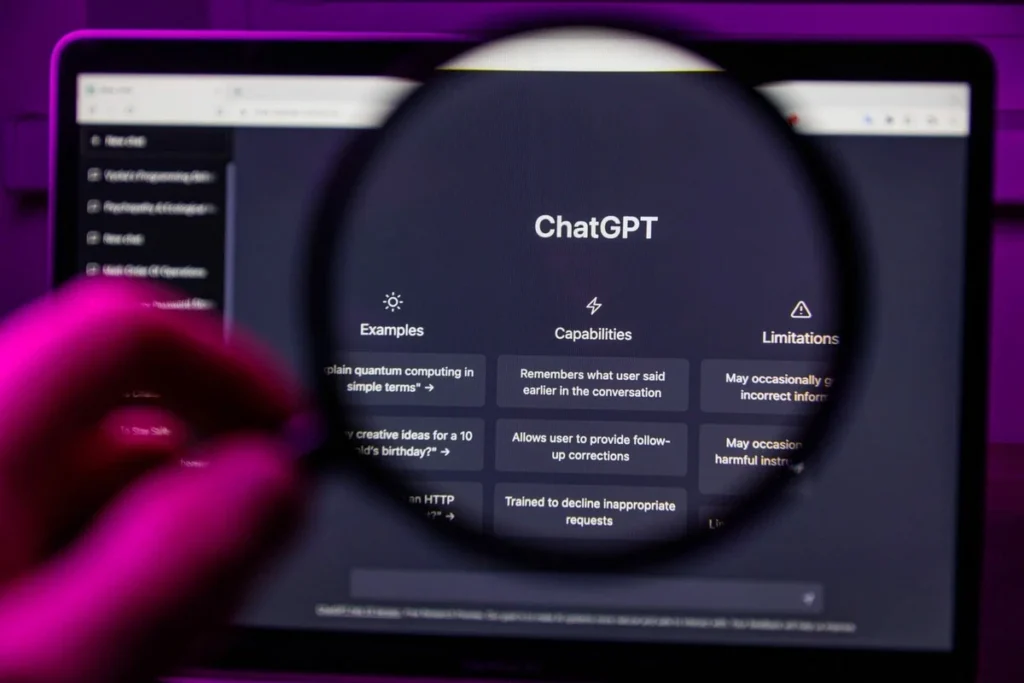Is ChatGPT Able to Summarize Legal Cases Professionally?
Think about receiving 200 pages of papers to study while waiting for your lunch break.
Now picture a tool that scans, grasps, and outlines every detail, just in seconds.
That’s why ChatGPT for legal cases is becoming more and more popular. Lawyers and law firms of all kinds are assessing whether the tool can genuinely support document analysis and help with summarizing legal decisions.
Many people ask: Is ChatGPT just popular as a trend, or should it be trusted as a reliable legal helper?
In this blog post, we’ll check the abilities of ChatGPT in preparing simplified summaries of legal cases, consider its differences with other law-focused AI, and reflect on the rewards and risks involved in using AI in this area.
So, let’s jump in and discover what this data can do.
What is ChatGPT’s Role in Legal Case Summarization?
ChatGPT for legal purposes operates essentially as a highly efficient reading assistant. Available technologies can deal with many legal texts, such as court opinions, contracts, pleadings, or research memos, and turn their contents into simple, easy-to-understand summaries.
Both lawyers and paralegals have started using ChatGPT.
- Be able to read and follow through the main points in long law documents.
- Emphasize important facts, main problems, and main findings.
- Prepare reports called case briefs, client summaries, and legal memos.
- Look into various views or debates right away.
It can’t stand in for the expertise of a lawyer, but it cuts out a lot of early hours trying to understand routine or paperwork-related tasks.
Are you looking to develop legal workflows that are highly intertwined? Explore the AI Agent Development offered at Heyeve to get trained to think, talk, and act just like your very best paralegals.
Benefits of Using ChatGPT for Legal Cases
Speed and Efficiency
One of the best things about using ChatGPT for legal work is how fast it handles lots of information. It takes much less time to get a clear overview of a case than it takes to review one thoroughly. With this tool, lawyers spend less time reading and more on developing their approach.
Cost-Effectiveness
Junior associates and legal researchers are expensive to hire for document reviews. ChatGPT is an economical solution for lawyers working in small firms to handle their practice without sacrificing any important preparation.
Accessibility
New law students and clients may find legal language to be quite confusing. Using everyday terms, ChatGPT explains legal language so that anyone can understand it.
Support for Legal Drafts
In need of a quick case summary or a draft of a letter to one of our clients? ChatGPT saves lawyers’ effort by writing the first draft of a document in seconds, so they don’t have to look at a blank page. You can also use it to generate ideas, arrange your arguments, or set up your research outlines.
Limitations of ChatGPT in Legal Case Summarization
Risk of Inaccuracies
ChatGPT is built using information from a wide variety of texts, not just legal sources. Sometimes, it confuses fact and fiction. Errors made in legal cases can lead to scary consequences.
Researchers at the Berkman Klein Center at Harvard found that one out of five AI summaries in legal cases had mistakes. That’s a warning sign for any law firm that counts on AI alone.
Misinterpretation of Legal Nuance
In most legal cases, whether a term has a certain meaning, how an earlier ruling sets a standard, or how a law is written really matters. ChatGPT does not make decisions as a lawyer would. It’s capable of missing details that are noticeable when a lawyer is involved.
Input Dependency
The results from ChatGPT depend on the question it is given. If a question is not specific enough, the summary you get may be flawed. Giving the model the wrong framework or setting can make it give false results.
Partner with an AI development company that understands law. From courtroom simulations to client intake bots, we maintain precise perfection.
HeyEve vs. Chatgpt for Legal Case Summarization
How does using ChatGPT for legal cases compare to tools designed by specialists for lawyers? That’s where HeyEve comes in—it uses artificial intelligence to deal precisely with highly technical rules and other legal language. Have a look at how they compare:| Feature | Chatgpt | Heyeve |
| Purpose | A general language model based on artificial intelligence | Specific for legal applications |
| Summarization Accuracy | Moderate | High (Based on legal material collected from datasets) |
| Integration | Using the web app or an API | VR-powered; accessed via headset for immersive case training |
| Customization | Limited to prompt tuning | Context-aware legal summaries |
| Hallucination Risk | Moderate | Significantly Reduced |
Legal and Ethical Considerations in Using ChatGPT for Legal Cases
Both ChatGPT and HeyEve are bringing major changes to legal services. At the same time, they spark debates and ethical questions because rights, money, or freedom may be involved.Confidentiality Concerns
Sensitive details about clients are usually found in legal papers. Submit your discussion notes or journals to a public or third-party tool such as ChatGPT, and there’s a risk that they won’t keep your confidentiality, because the platform may process or learn from your inputs.Unauthorized Practice of Law(UPL)
ChatGPT may seem like an attorney, but it is not. Failing to review the firm’s legal work before using it can lead to mistakes in recommendations for clients.Lack of Accountability
If an AI tool mistakes something, who should be blamed? You are. Reliable use of AI for both writing and summarizing requires the outputs to be looked over and checked by an expert before use.Bias and Fairness
Biases found in the information used to create an AI model can be viewed and reinforced by the model. Racial, gender, or social-class bias, which are dangerous in legal situations where fairness must prevail, can be included.ChatGPT vs Traditional Legal Research Methods
ChatGPT answers quickly, but in legal matters, you need to consider accuracy, careful thinking, and the right interpretation. Let’s look at their differences:Traditional Legal Research
- How humans understand and analyze information.
- Being able to fully grasp context, past examples, and argument structures.
- Has always followed professional and ethical rules.
ChatGPT for Legal Cases
Easy to use for drafting ideas and creating summaries fast. A lack of skill in understanding complicated laws. Risk of seeing or believing things that aren’t real. All said, ChatGPT handles large-scale content, but people are better at telling the truth. At present, it works best to rely on ChatGPT to support your work instead of replacing it.Future Directions in ChatGPT for Legal Cases
Technology is changing as the legal profession changes, too. Let’s take a look at how ChatGPT might play a role in the legal world:Legal Domain Training
AI will be further adjusted for the legal sector, learning from case law, laws, scholarly pieces, and brief case overviews. As a result, responses would be even more timely and correct.Human + AI Integration
It’s not just AI or only humans that will lead to effective legal workflows; the best results come when AI and people team up. Suppose a paralegal reads over AI summaries of cases or a lawyer uses AI tools to make their arguments with extra time.Compliance Standards
If AI is to be adapted in law firms and law schools, it must pass set standards for confidentiality, clash checks, openness, and precision. Firms and tech companies in the legal field will be encouraged to set up their own rules for using AI safely.Our team can help you whether you are exploring legal AI, need a custom chatbot, or are simply curious. Let’s build something powerful together.
Conclusion: Should You Use ChatGPT for Legal Cases?
Lawyers who use ChatGPT the right way can see major benefits.
If you wish to work faster, compose documents faster, and learn the main points of legal documents, ChatGPT is a great help. Students in legal studies, early researchers, and those brainstorming can make great use of it.
But a lawyer is not what it is.
It cannot grasp legal complexity as a trained professional can, and sometimes it makes mistakes or fails to notice the whole picture. As a result, having access to legal education tools like HeyEve gives you the advantage when working on important matters.
Bottom line?
Use ChatGPT to assist with legal work, but know it should not be viewed as a source of legal information. Review everything. Double-check your information. A professional judgment call is important in every situation.
Frequently Asked Questions (FAQs)
How fast can ChatGPT summarize a legal case compared to a human?
Yes. Lexis+ AI, CaseText CoCounsel, Relativity, and Filevine were developed to help paralegals manage legal research, review documents, and automate their work processes.
Can ChatGPT help prepare for oral arguments and presentations?
Absolutely. With new skills in legal technology, better communication, analysis, and awareness of AI, a paralegal becomes more important to the company.
Can ChatGPT be used for other legal tasks beyond summarization?
With AI to help, paralegals spend more time on important tasks such as strategy, handling cases, and connecting with clients, which helps their careers.
What is the best legal AI tool for summarizing cases?
AI is not able to take over what is unique to human judgment, empathy, ethics, or creativity. It has the power to give information, but it does not understand situations with complex legal meanings or make ethical judgments.
Should you trust ChatGPT to interpret contracts or statutes?
Not likely. Legal assistants organize appointments with clients, keep the calendar updated, and communicate private or sensitive details to others, all of which require people skills and attention. These jobs will change, but they are not going away.


